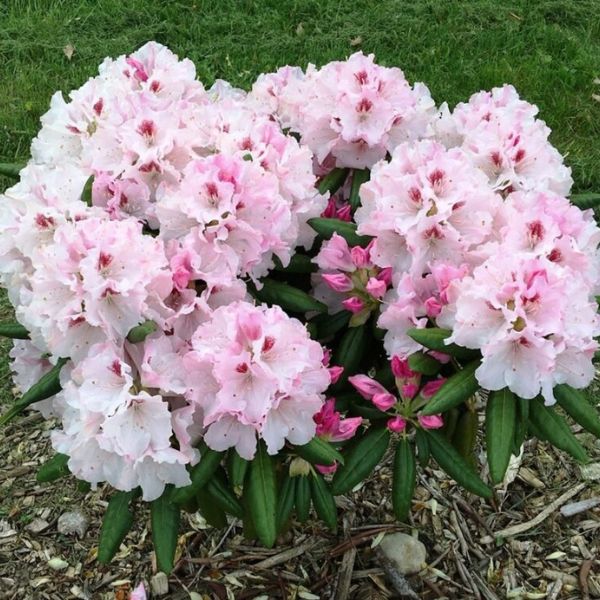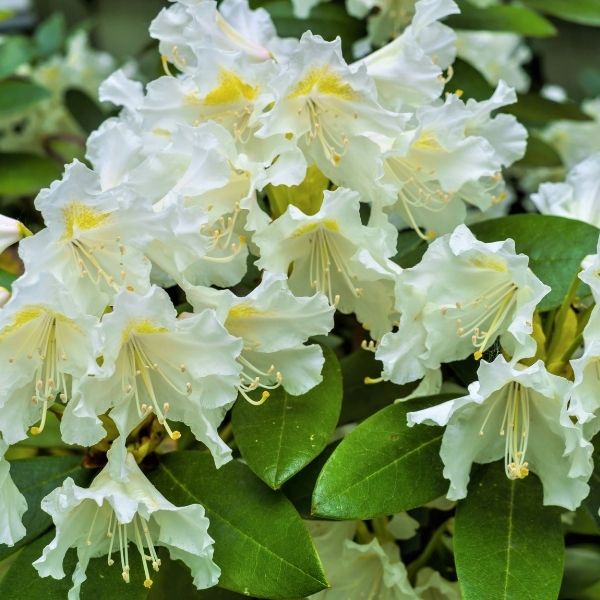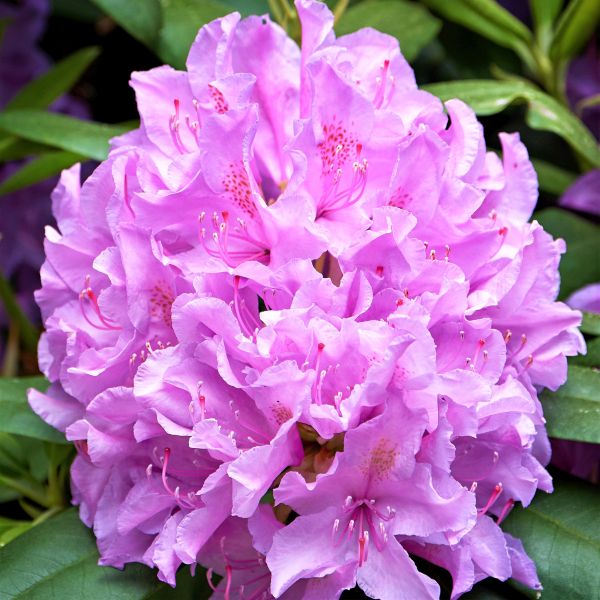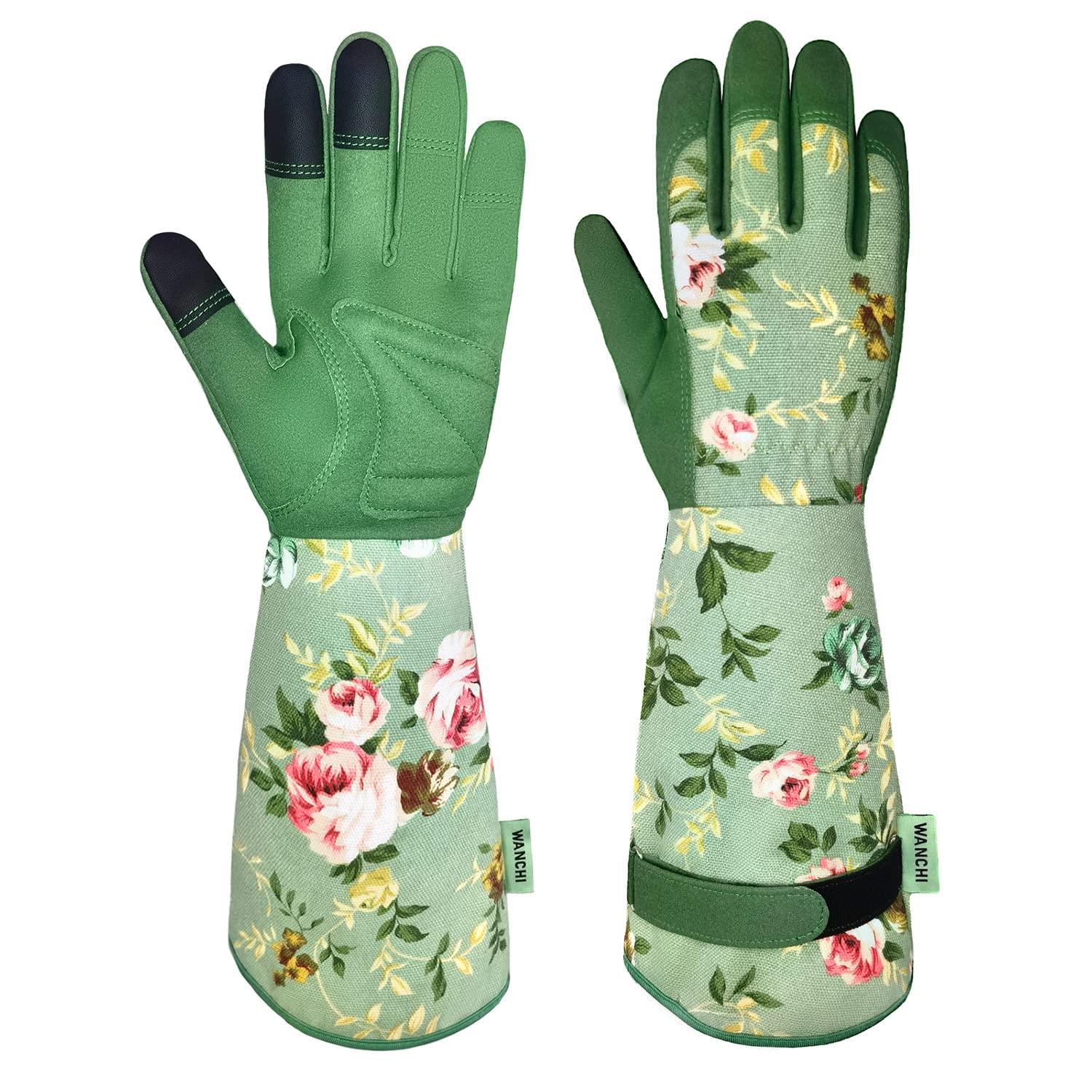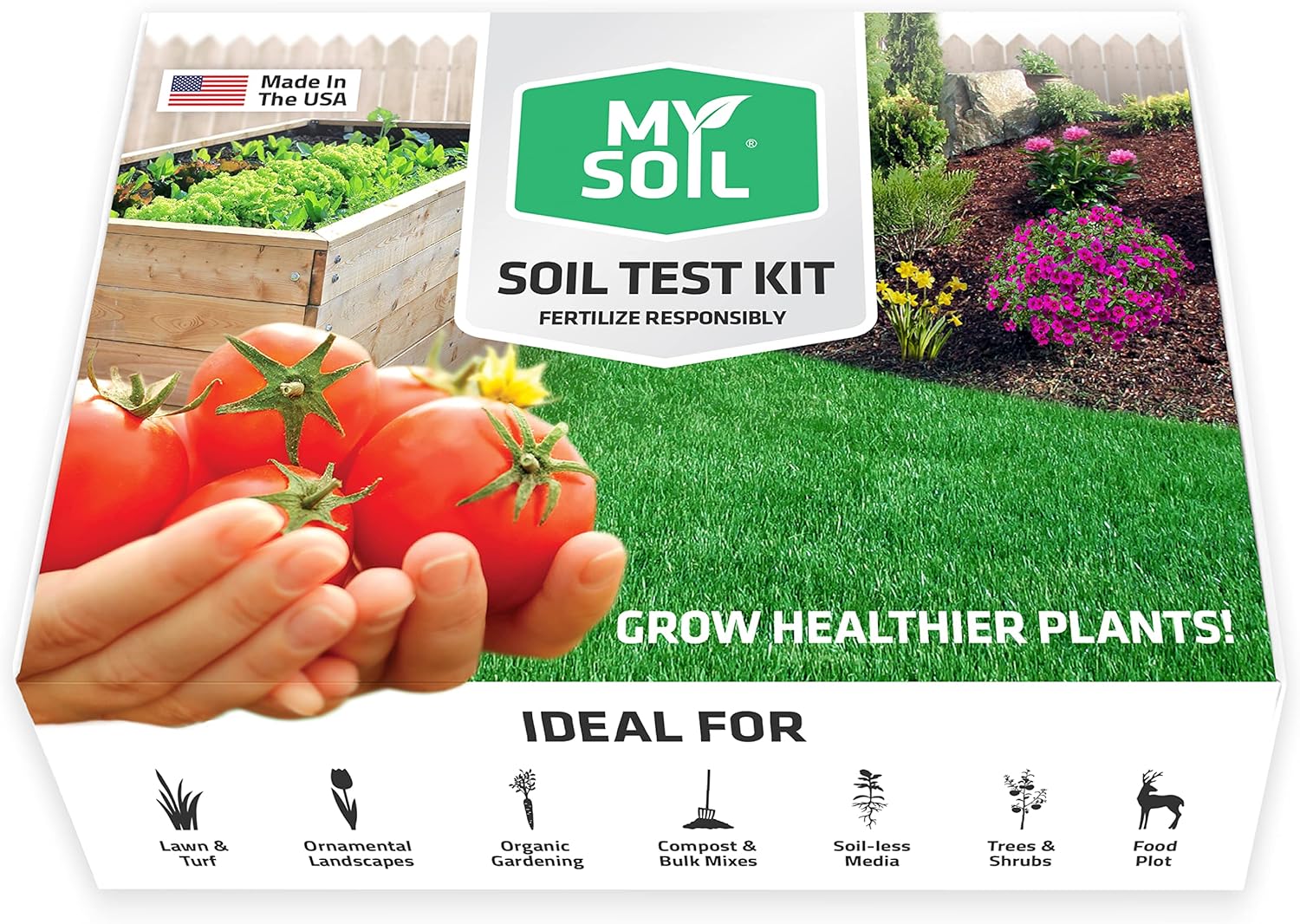Unlock the Secret to Stunning Rhododendron Blooms
Want a riot of huge, bright flowers every spring? This comprehensive guide covers everything you could ever want to know about growing rhododendrons.

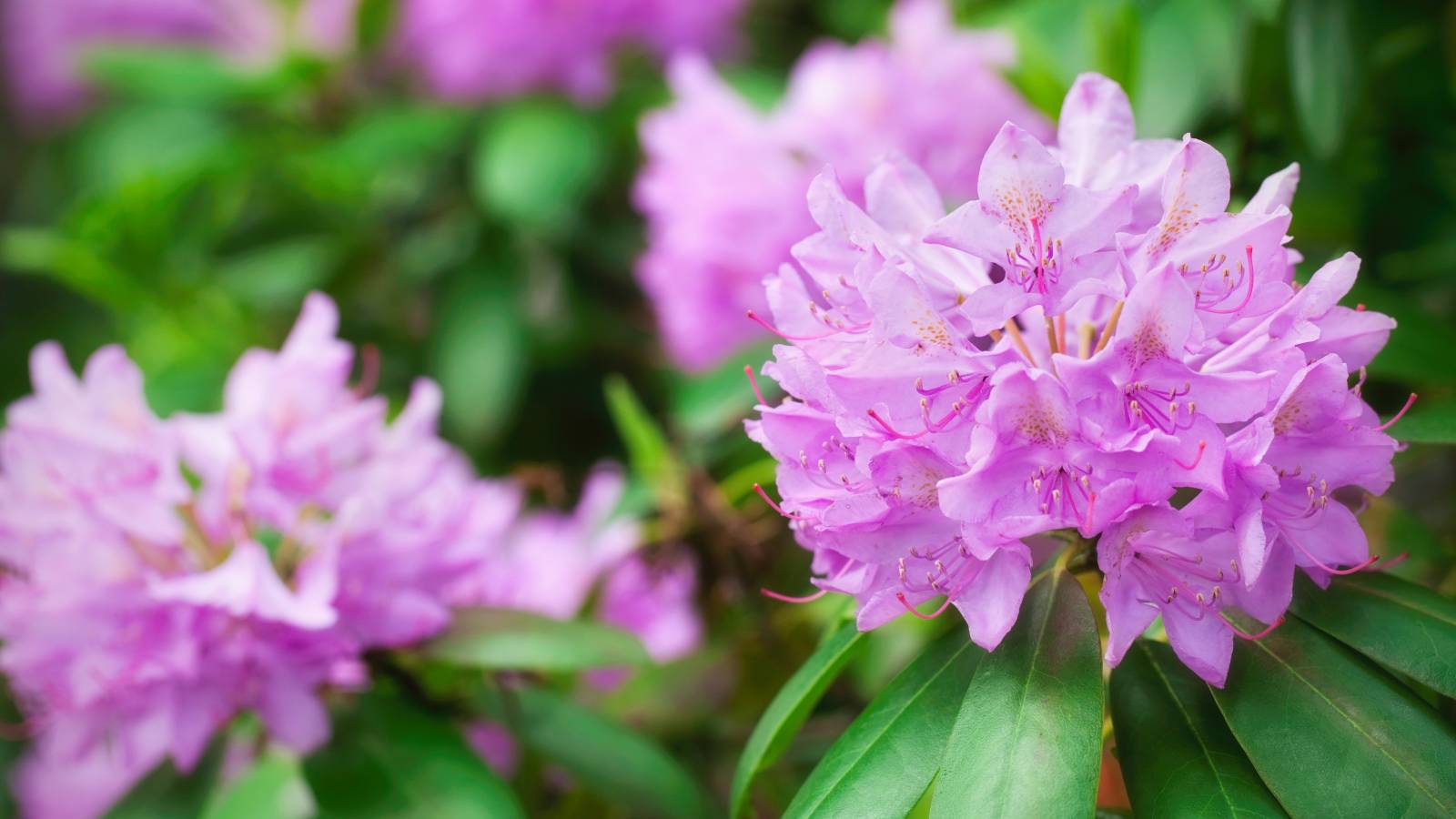
Sign up for the Gardening Know How newsletter today and receive a free copy of our e-book "How to Grow Delicious Tomatoes".
You are now subscribed
Your newsletter sign-up was successful
Think spring flowering shrubs, and chances are you’re thinking about rhododendrons (Rhododendron spp). Even when they’re not blooming, these massive shrubs and their broad, evergreen leaves make a beautiful statement all year long. Then for one or two weeks every spring, they explode into a riot of huge, bright flower clusters. Walk around a residential neighborhood, and you’ll see at least one house with a rhododendron sprawling up past a second story window.
Despite their ubiquity, rhododendrons can’t be grown just anywhere. They do have a few specific growing requirements that you need to be sure to follow to ensure success. In this comprehensive guide rhododendron care guide, we’ll cover picking the perfect spot, caring for your shrub, propagating, and diagnosing problems. We’ll also answer that age-old question: what’s the difference between a rhododendron and an azalea?
Quick Rhododendron Facts
Botanical Name | Rhododendron spp. |
Plant type | Shrub |
Height | 5-20 feet (1.5-6 m), depending on variety |
Spread | Same as height |
Light | Morning sun, afternoon shade |
Soil | Well-draining, acidic |
Hardiness | USDA 4–9 (Not in the US? Convert your zone) |
Flowers | Spring |
Range | North America; Asia |
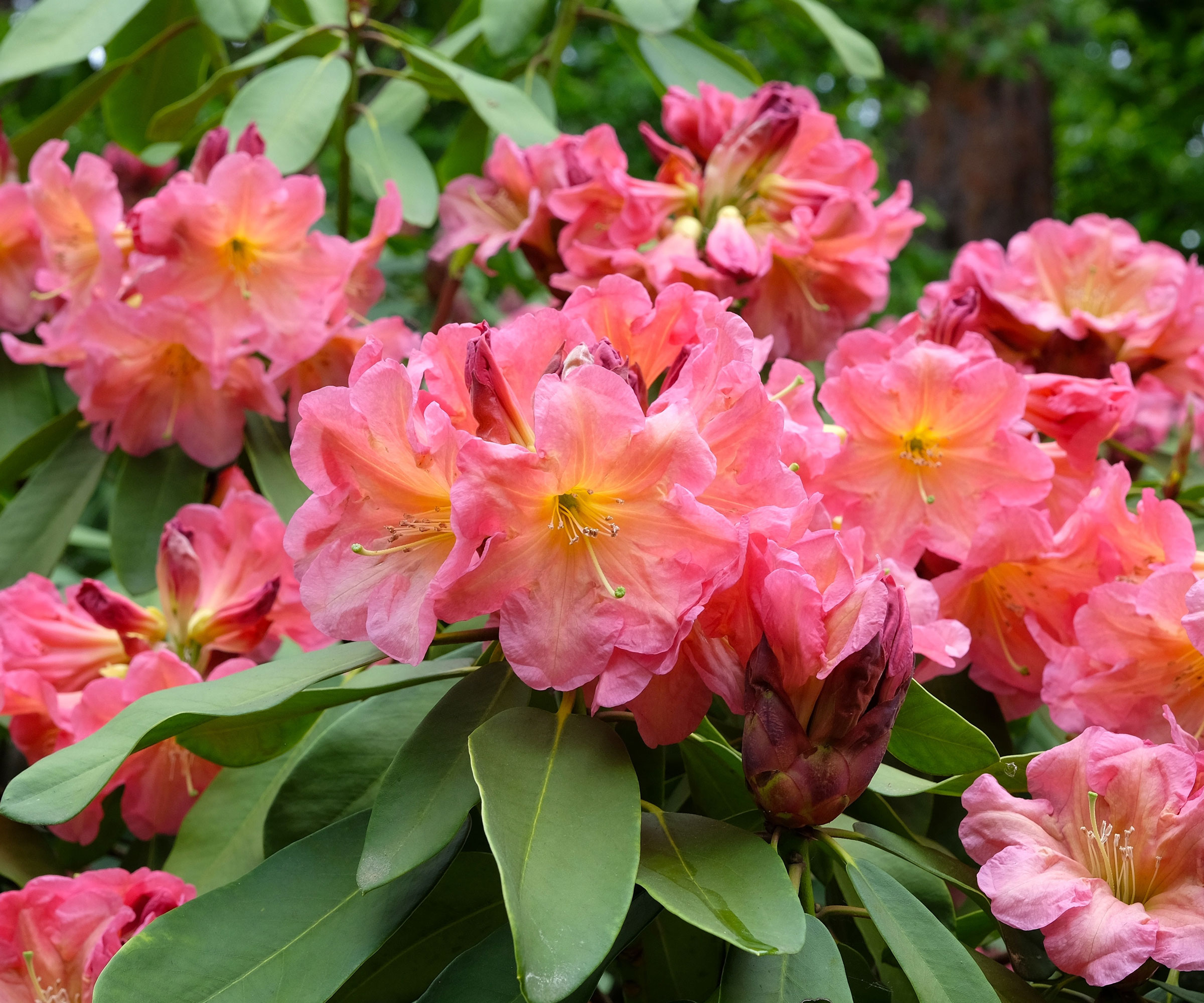
Planting Rhododendrons
Looking for the perfect spot to plant your rhododendron bush? Make sure you follow a couple simple guidelines, or you could be fighting an uphill battle from day one.
Soil
When it comes to rhododendrons, there are two non-negotiables: pH and drainage. These shrubs need highly acidic soil to thrive: ideally between 4.5 and 5.5. If your soil verges on too alkaline (or even too neutral), your rhododendron won’t be able to absorb essential nutrients. One of those nutrients is iron, and its lack can lead to chlorosis, or yellowing of the leaves. This, wouldn’t you know it, is a key sign that a rhododendron’s soil isn’t acidic enough. Amend your soil with elemental sulfur or aluminum sulfate if your pH is too high.
To check the pH of your soil, use a test kit like the MySoil Soil Test Kit (from Amazon). This will give you some indication whether your soil is too acidic or alkaline.
While rhododendrons need lots of moisture, they can’t sit in soggy or heavy clay soil. Make sure your soil can retain water but still drain well by amending with lots of organic material like leaf mold or compost.
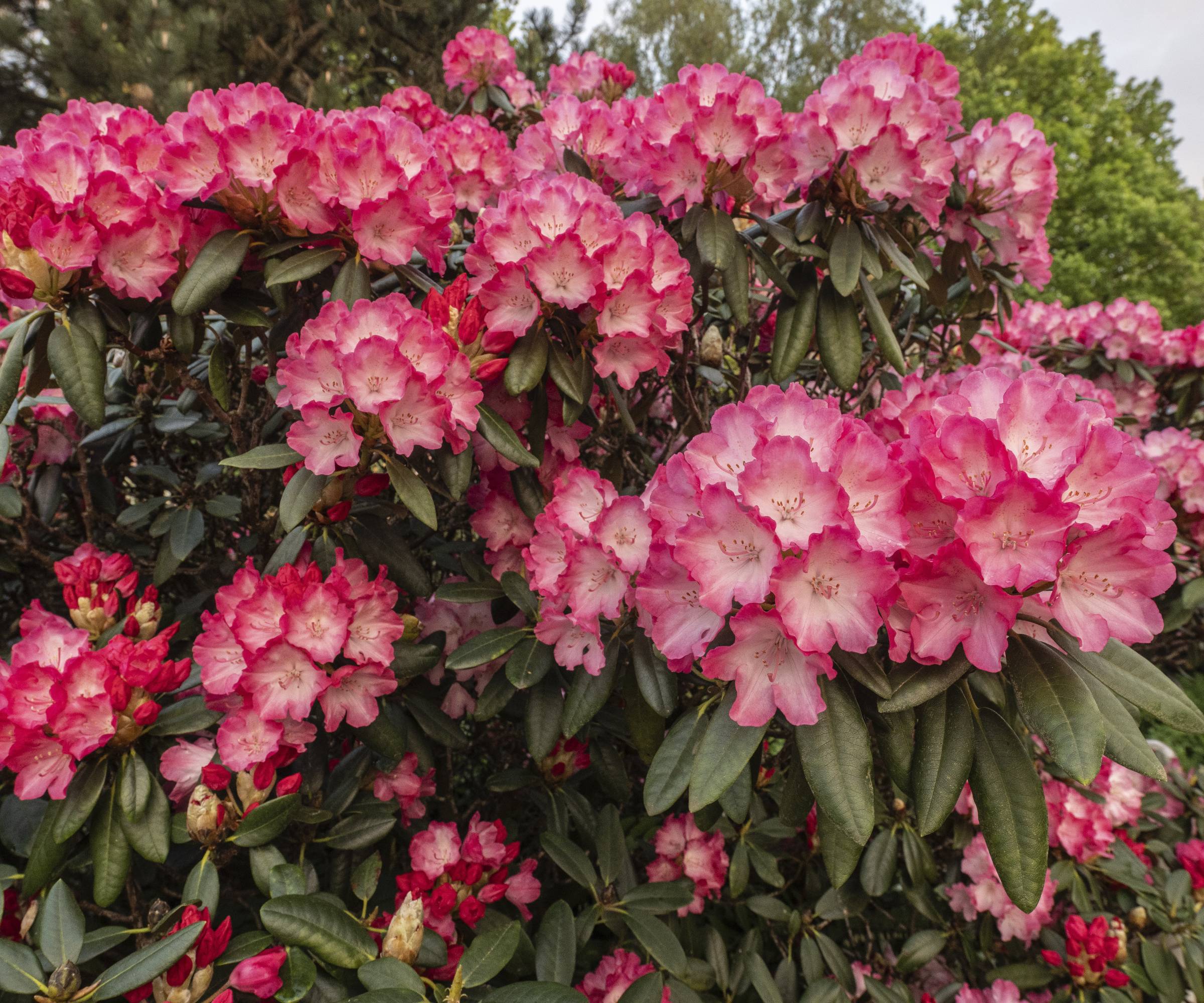
Light
Rhododendron light requirements can also be tricky. While common knowledge tends to designate it a “shade-loving plant,” it needs to be the right kind of shade. That is, filtered, dappled shade with occasional sun. This is best achieved by planting them under the canopy of tall trees. In this spot, they’ll ideally get some bright sun in winter for bud development, then partial shade in the summer with good protection from the strong afternoon sun.
Sign up for the Gardening Know How newsletter today and receive a free copy of our e-book "How to Grow Delicious Tomatoes".
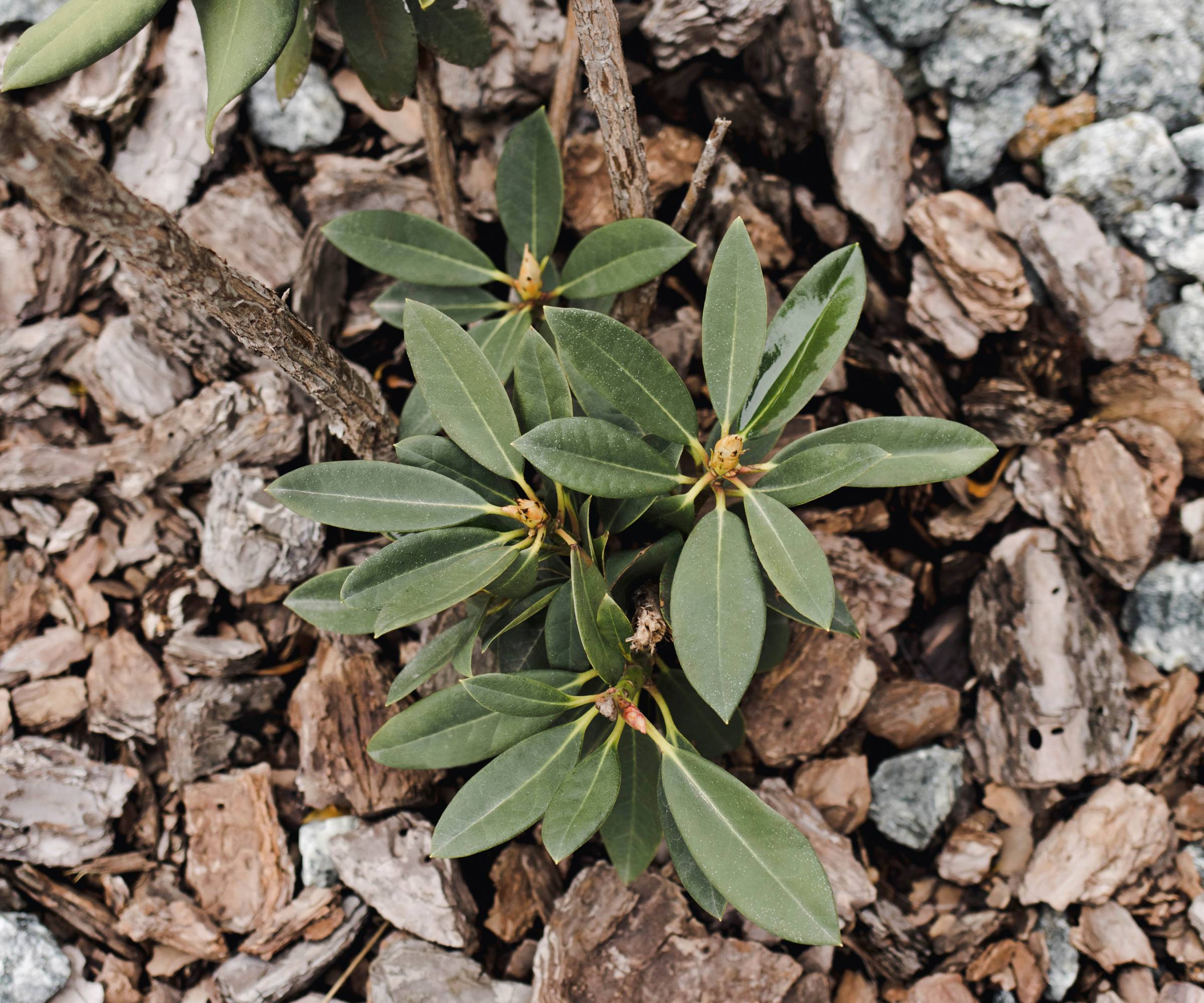
Planting and Transplanting Rhododendrons
Rhododendrons have very shallow roots, which means they take well to transplanting. It also means, however, that you have to take care not to plant them too deep. The best time to plant (or transplant) a rhododendron is the fall. The next best time is early spring. You should avoid planting rhododendrons in the summer if you can help it – the heat will stress the shrub and make it harder for it to establish.
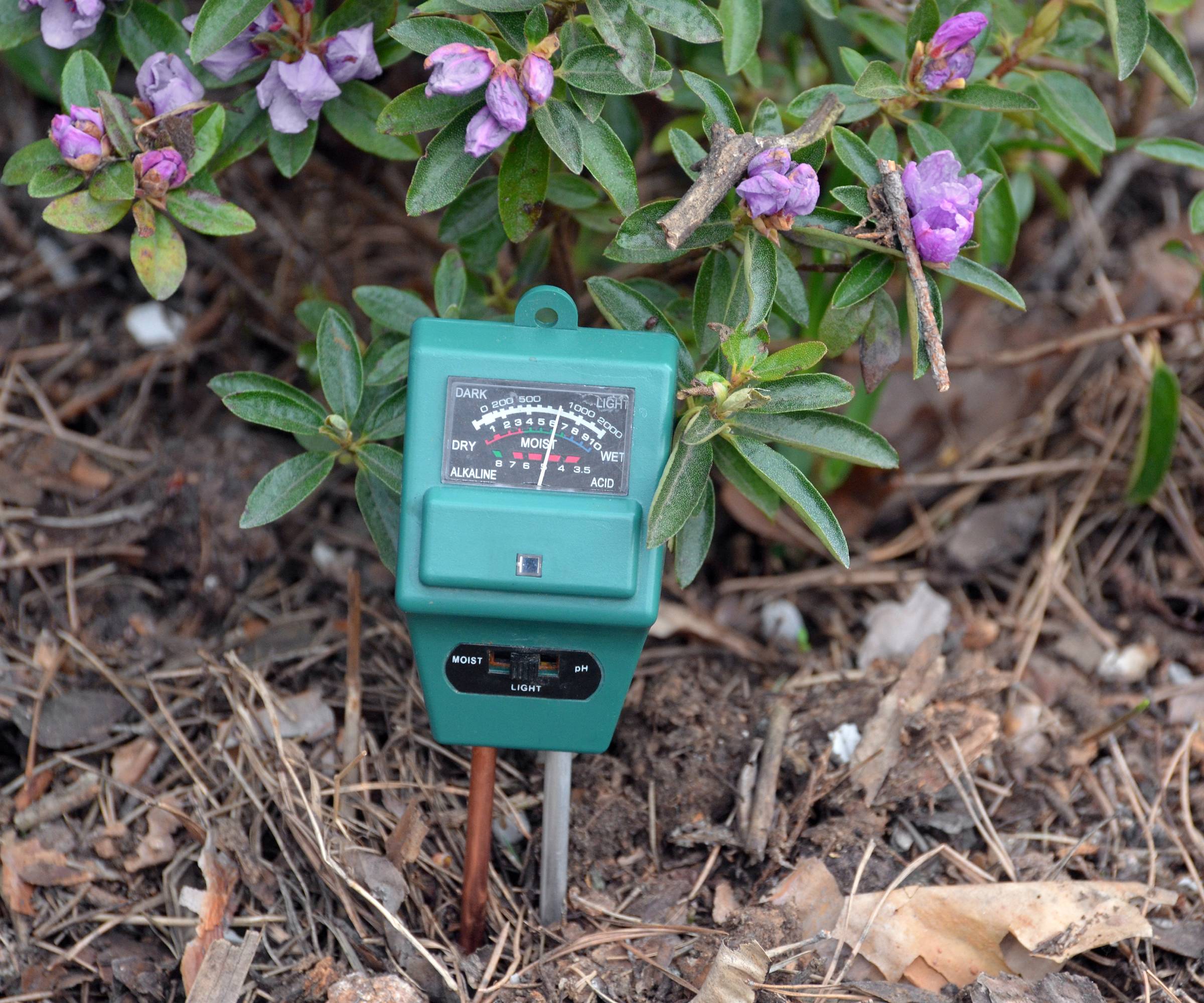
Step-by-Step Planting Guide
- Choose a spot with dappled shade and soil rich with organic material.
- Dig a hole three times wider than the root ball, but no deeper than the root ball’s height.
- Plant the rhododendron, with 1-2 inches (2.5-5 cm) of the root ball above the soil.
- Fill in the hole with acidic, well-draining soil.
- Water thoroughly.
- Apply a thick layer of mulch.
Get Your Own
Rhododendron Care
Once your rhododendron is established, there are a few crucial elements that will keep it growing strong.
Watering Rhododendrons

Rhododendrons need consistent moisture in order to bloom well, and to stay healthy throughout the growing season. It’s important to keep the root ball moist, but not soaking wet, which can be a tough balance to strike.
During any prolonged periods without rain, water your rhododendron deeply once a week, in the morning when evaporation is least likely. Begin watering when buds appear, and keep watering until the leaves have reached their full size. This method only works if the soil is extremely well-draining – standing water can lead to root rot. If water is draining properly, you may have to move your rhododendron to a new spot.
Mulching Rhododendrons
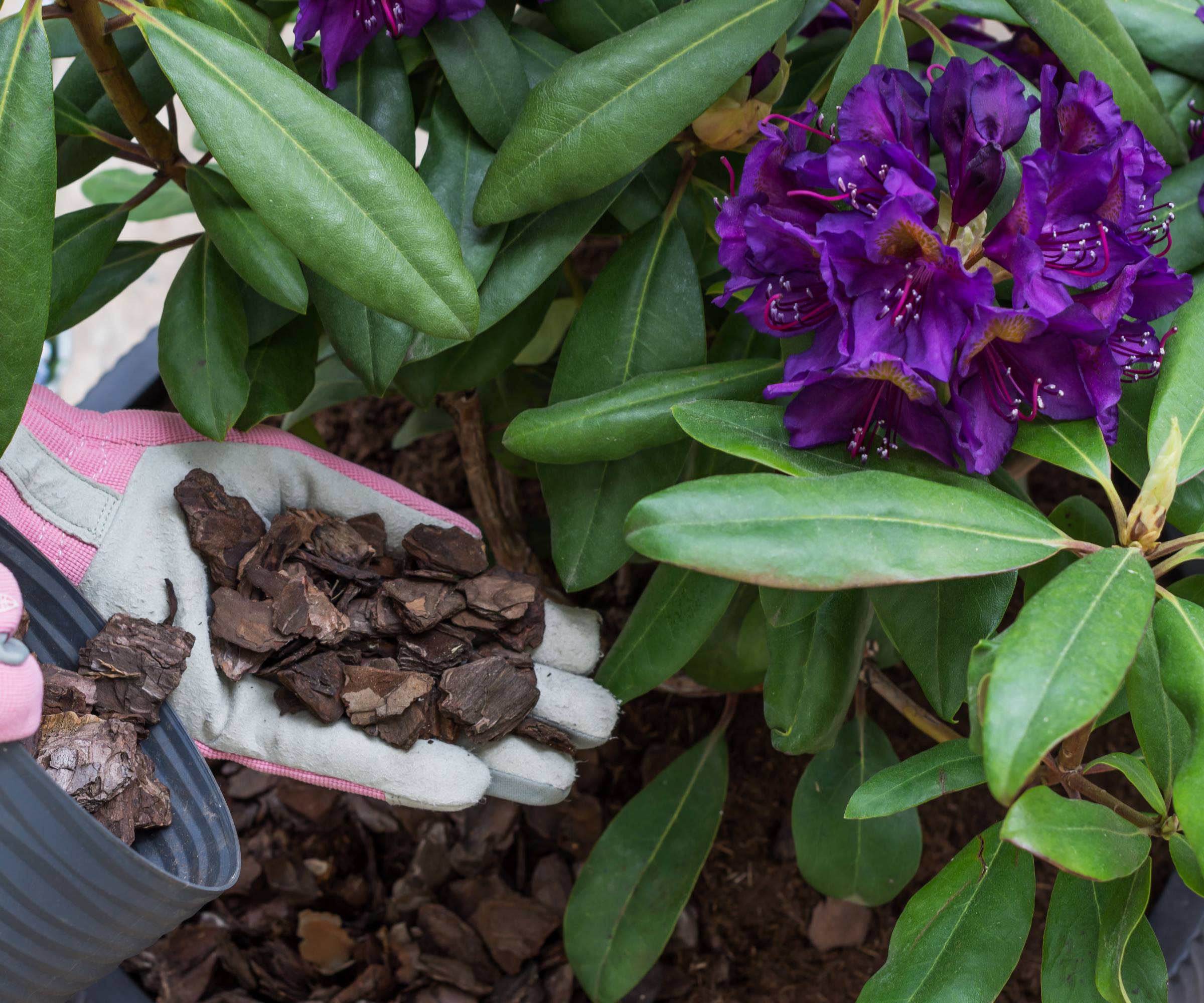
Mulch is an excellent way to retain moisture around a rhododendron. Apply 4 inches (10 cm) of organic mulch, but leave a ring clear around the base of the shrub to prevent rot. Low pH mulch materials like pine needles, oak leaves, and pine bark will help keep the soil acidic as it breaks down.
Fertilizing Rhododendrons
Fertilize rhododendrons with products specifically designed for them and other acid-loving plants, like this one from Amazon. Since rhododendrons have shallow roots, they’re more at risk of being burned by fertilizer, so go on the lighter side with the application. Fertilizer rhododendrons spring, just after flowering has finished.
Don’t fertilize rhododendrons after July 1! This will stimulate growth too late in the season, and could lead to frost damage.
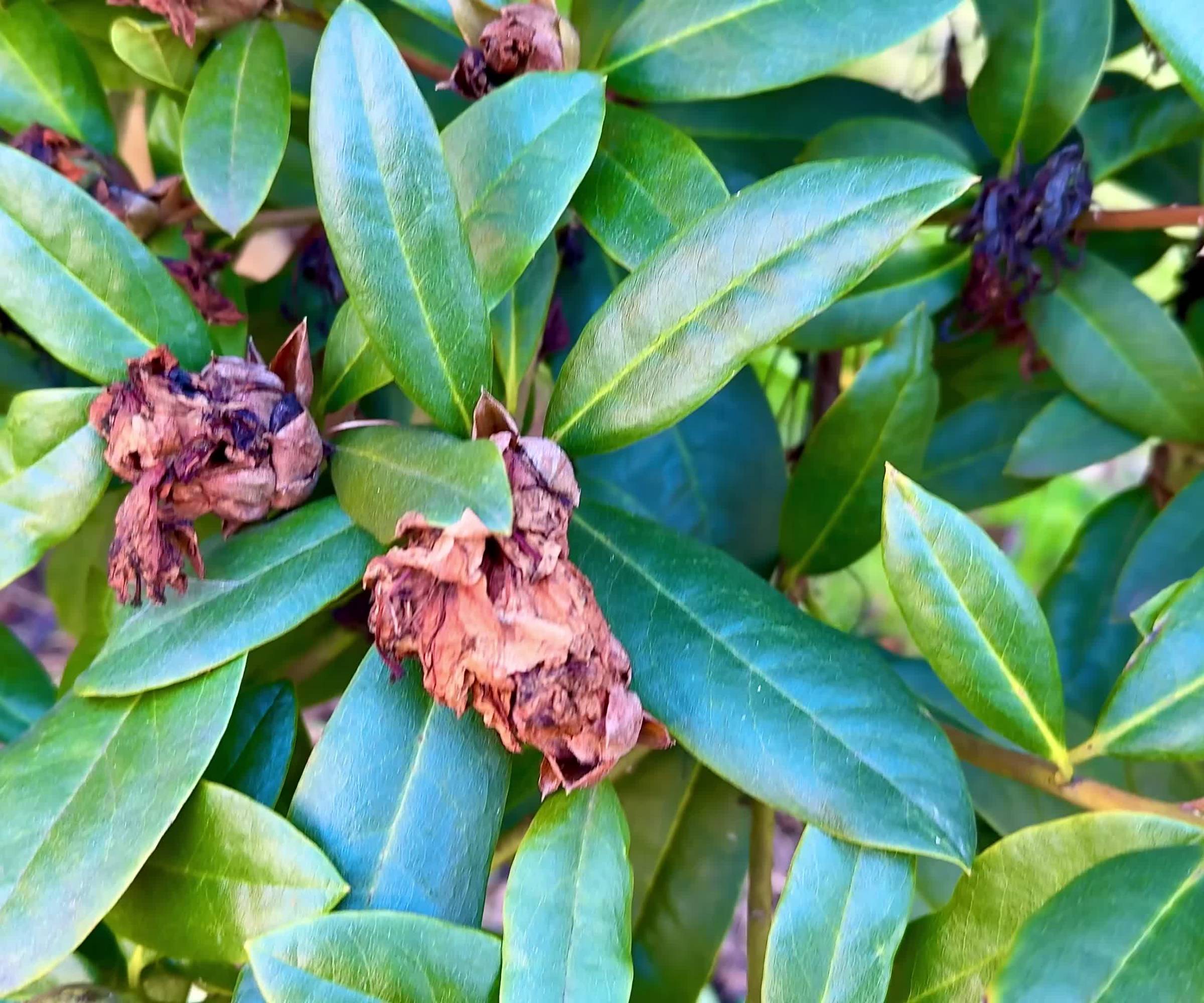
Pruning and Deadheading
Pruning rhododendrons isn’t really necessary, unless you want to shape the shrub or keep it a certain size. If you do choose to prune, do it immediately after flowering. This is least likely to remove buds and reduce the number of flowers next year.
While pruning isn’t necessary, deadheading is. You should remove spent rhododendron flowers immediately after blooming. This will keep the shrub from expending energy on seed production, and make it focus exclusively on growing buds for following year. If you don’t deadhead, you probably wont’t get as many flowers next spring.
To deadhead a rhododendron, carefully snip off the spent flower cluster, taking care not to disturb the cluster of buds growing at its base.
Rhododendron Care Calendar
| Row 0 - Cell 0 | Spring | Summer | Fall | Winter |
Planting | ✓ | Row 1 - Cell 2 | ✓ | Row 1 - Cell 4 |
Fertilizing | ✓ | Row 2 - Cell 2 | Row 2 - Cell 3 | Row 2 - Cell 4 |
Deadheading | ✓ | Row 3 - Cell 2 | Row 3 - Cell 3 | Row 3 - Cell 4 |
Mulching | ✓ | Row 4 - Cell 2 | ✓ | Row 4 - Cell 4 |
Azalea vs. Rhododendron
What is the difference between a rhododendron and an azalea? First of all, it's important to note that both rhododendrons and azaleas belong to the genus Rhododendron. To put it another way, all azaleas are rhododendrons, but not all rhododendrons are azaleas. At first glance, they look the same, and to be honest there isn’t a hard and fast line between the two. But there are some easy distinctions to look for.
| Row 0 - Cell 0 | Azalea | Rhododendron |
Bloom Time | Early spring | Mid spring |
Flower Shape | Funnel or tube | Bell |
Number of Stamens | 5 | 10 |
Flowers per Stem | 1 | Several |
Leaves | Small and thin | Large and leathery |
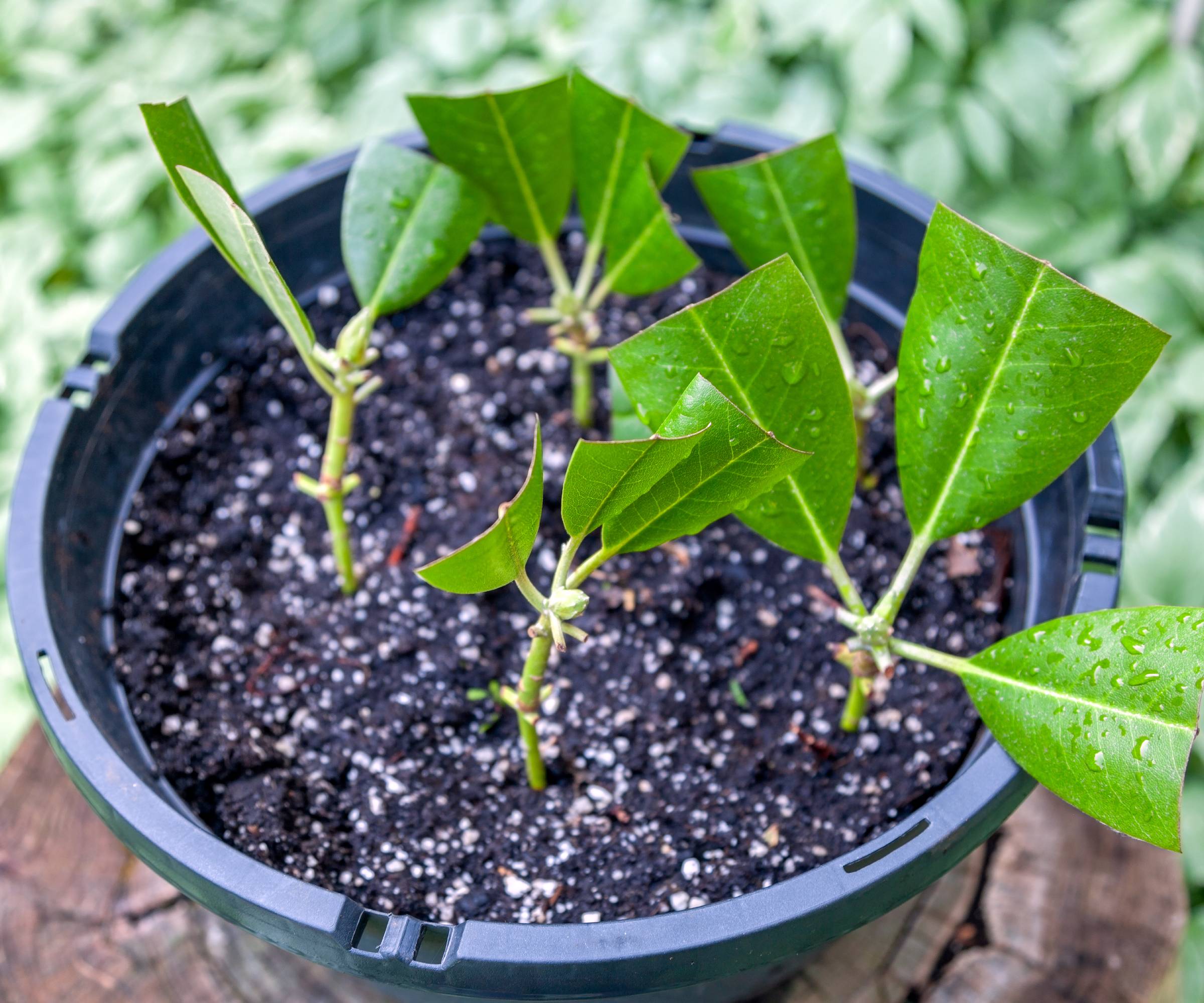
Propagating Rhododendrons
The best way to propagate a rhododendron is by softwood cuttings. The best time to take cuttings is late summer through fall, when new growth has matured but isn’t yet woody.
- Take 2-3 inch (5-7.5 cm) cuttings, preferably with a terminal bud.
- Remove all but the top 3 leaves.
- Remove the top half of the remaining leaves.
- Cut a 1 inch (2.5 cm) vertical slice along two sides of the bottom of the cutting. This is called “wounding.”
- Apply rooting hormone to the wounded end.
- Insert the cutting into a pot of moist growing medium.
- Cover the pot with plastic.
- Place the pot out of direct light.
- Roots may take 2-4 months to appear.
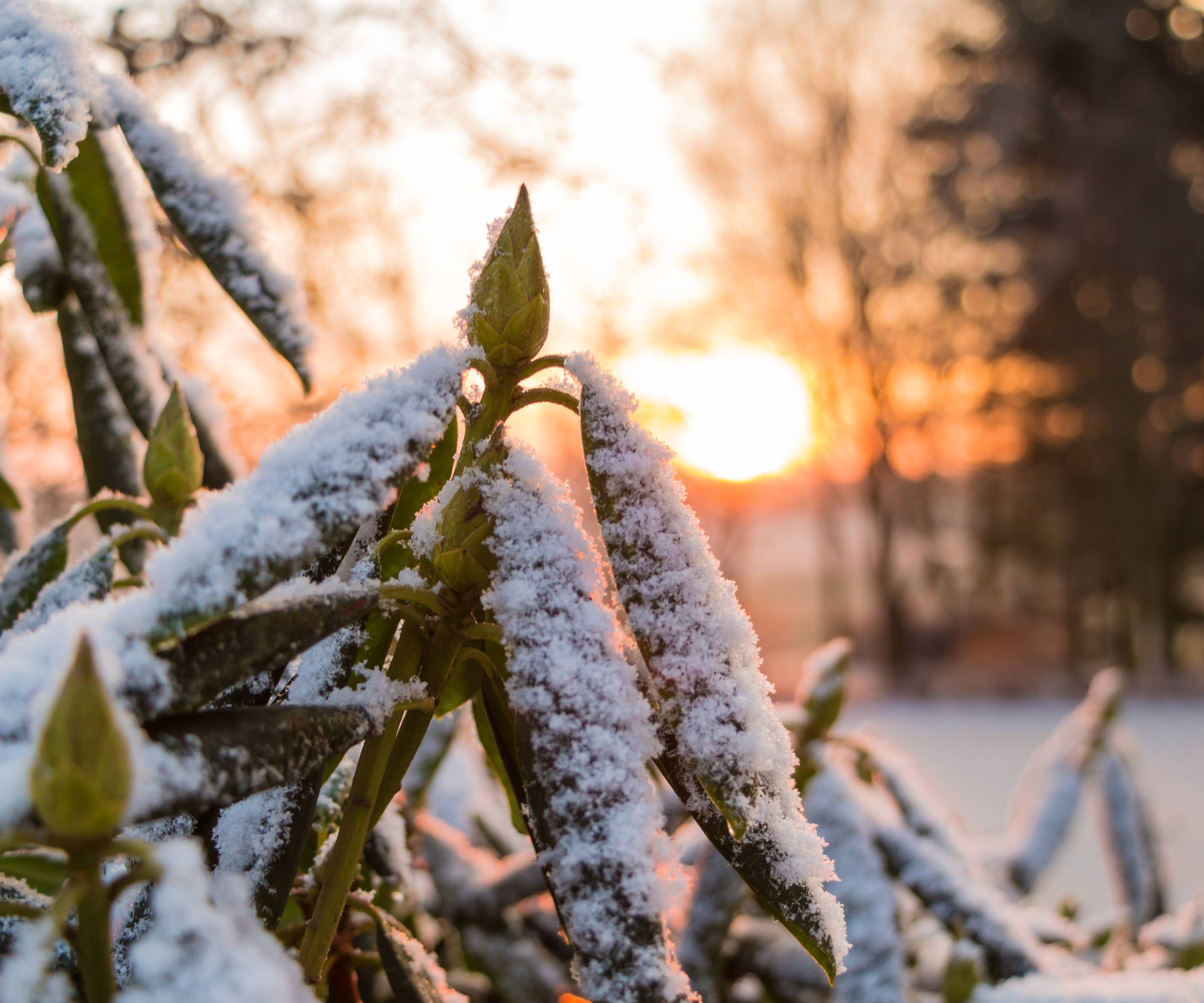
Rhododendron Winter Care
While rhododendrons are very cold hardy, they’re still at risk of desiccation in the winter. This is because their evergreen leaves naturally lose moisture to wind and sun, but their roots can’t take up water through the frozen ground. (This doesn’t apply to the few deciduous varieties of rhododendron).
You may even notice your rhododendron’s leaves curling in on themselves on a cold day – this is the shrub’s natural defense against desiccation. Help keep it from drying out by wrapping it in burlap or putting up windscreens. When first planting, you can head off a lot of desiccation problems by situating your rhododendron in a spot that’s protected from the wind.
Rhododendron Growing Essentials
- Rhododendrons need acidic soil – lower your pH with a soil acidifier like this one available on Amazon.
- Plant your rhododendron with ease with this Super Socket Shovel from Home Depot.
- Make sure to feed your rhododendrons with fertilizer for acid-loving plants, like this one from Amazon.
Quiz!
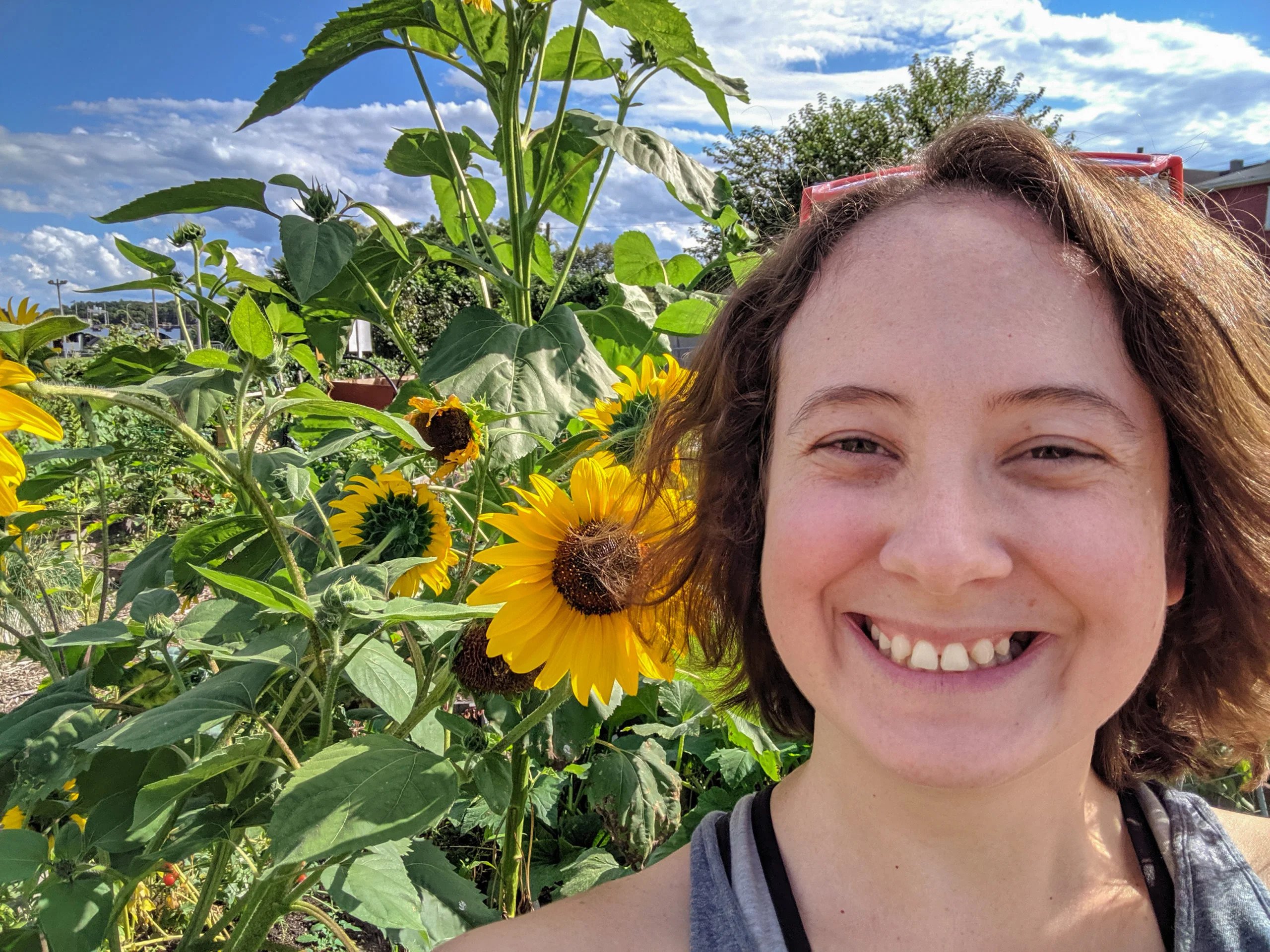
The only child of a horticulturist and an English teacher, Liz Baessler was destined to become a gardening editor. She has been with Gardening Know how since 2015, and a Senior Editor since 2020. She holds a BA in English from Brandeis University and an MA in English from the University of Geneva, Switzerland. After years of gardening in containers and community garden plots, she finally has a backyard of her own, which she is systematically filling with vegetables and flowers.
